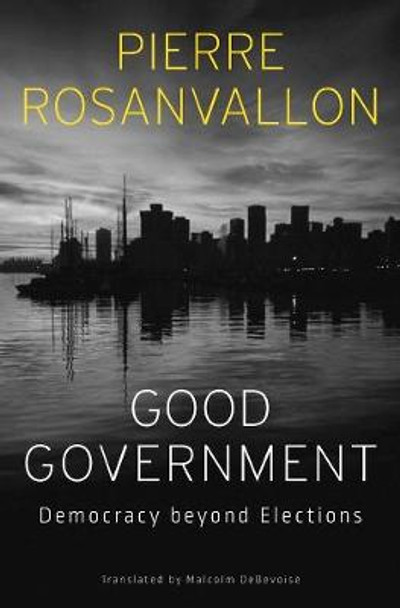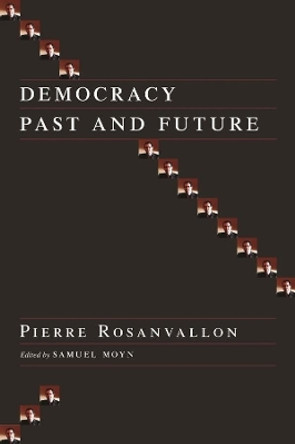Description
Few would disagree that Western democracies are experiencing a crisis of representation. In the United States, gerrymandering and concentrated political geographies have placed the Congress and state legislatures in a stranglehold that is often at odds with public opinion. Campaign financing ensures that only the affluent have voice in legislation. Europeans, meanwhile, increasingly see the European Union as an anti-democratic body whose "diktats" have no basis in popular rule. The response, however, has not been an effective pursuit of better representation. In Good Government, Pierre Rosanvallon examines the long history of the alternative to which the public has gravitated: the empowered executive.
Rosanvallon argues that, faced with everyday ineptitude in governance, people become attracted to strong leaders and bold executive action. If these fail, they too often want even stronger personal leadership. Whereas nineteenth-century liberals and reformers longed for parliamentary sovereignty, nowadays few contest the "imperial presidency." Rosanvallon traces this history from the Weimar Republic to Charles De Gaulle's "exceptional" presidency to the Bush-Cheney concentration of executive power.
Europeans rebelling against the technocratic EU and Americans fed up with the "administrative state" have turned to charismatic figures, from Donald Trump to Viktor Orban, who tout personal strength as their greatest asset. This is not just a right-wing phenomenon, though, as liberal contentment with Obama's drone war demonstrates. Rosanvallon makes clear that contemporary "presidentialism" may reflect the particular concerns of the moment, but its many precursors demonstrate that democracy has always struggled with tension between popular government and concentrated authority.
About the Author
Pierre Rosanvallon is Professor of Modern and Contemporary History of Politics at the College de France.
Reviews
For Americans, Pierre Rosanvallon's masterful study relating the history of executive empowerment to crises of democratic representation is unexpectedly timely. A major intervention by a leading French political thinker. -- Samuel Moyn, Yale University
[A] brief, brilliant intellectual history...Macron's scrambling of the French party system confirms Rosanvallon's diagnosis that the contemporary era is one of 'malrepresentation'...He demands nothing less than a 'second democratic revolution.' The first revolution was driven by the demand for universal suffrage; the second will concern the optimization of governance. -- Jan-Werner Muller * London Review of Books *
Pierre Rosanvallon gives us precise words and a historical context for understanding [democratic] disenchantment... No one can explain better than he does how executive power...finally emerged as the only effective instrument for the transformation of societies. -- Bruno Le Maire * Philosophie Magazine *
Awards
Winner of FAF Translation Prize 2019 (United States).
Book Information
ISBN 9780674979437
Author Pierre Rosanvallon
Format Hardback
Page Count 352
Imprint Harvard University Press
Publisher Harvard University Press








